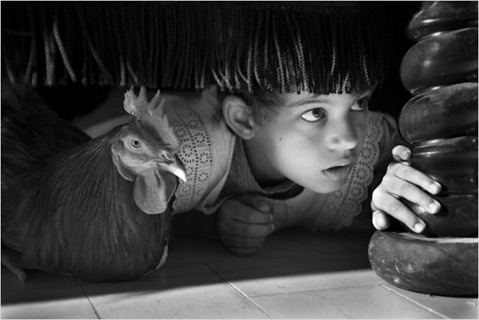
In terms of its cultural, historical, and cinematic cross-references, the fresh, fascinating — and yes, silent — Spanish film Blancanieves is a multi-tentacled beast. Writer/director Pablo Berger has deftly concocted a film that manages to channel and reroute the Snow White narrative, while also dealing with the mythology and meat of the bullfighting life and the texture of Andalusian life in the 1920s. And, not at all incidentally, Berger’s film earnestly celebrates the discipline and beautiful formality of black-and-white silent cinema, even in this info-saturated digital age.
Of course, relative to that last count, the reference most moviegoers will naturally seize on goes back a mere couple of years, to Michel Hazanavicius’s award-scooping silent opus The Artist. The Artist, it would seem, has made the world safe for black-and-white silent features, and Blancanieves is the first internationally spun film to follow in its noble footsteps.
In Berger’s clever redo of Snow White, the Teutonic fairy tale is recast, drawing on strictly Spanish elements of bullfighting and flamenco. Maribel (Y Tu Mamá También) Verdú digs into her role as the beautiful and arch-villainous evil stepmother, who has fiendishly finagled her way into the post-goring life of our young heroine’s toreador father. The machinery of melodrama is in place but sprinkled with enough quirks and knowing winks that we gamely play along. We love to hate her, just as we love to root for the Snow White surrogate, named Carmen, who is destined for all of the original story’s twists of fate, and otherwise.
Lacking the elements of interactive dialogue and live sound, greater emphasis goes to the purely visual angle of the artistic result, and cinematographer Kiko de la Rica’s work is stellar, from start to finish. Each shot seems carefully construed, while composer Alfonso de Vilallonga’s score provides all-important texture and color without seeming overly intrusive or emotion-bullying — often a foible of films with excessive musical scores.
Blancanieves also qualifies in the slim subgenre of films in which dwarves — the seven of them belonging to the traveling troupe The Bullfighting Dwarves — rule. They get due and gainful screen time, and possibly even get the girl. On that subject, we will remain respectfully silent.



